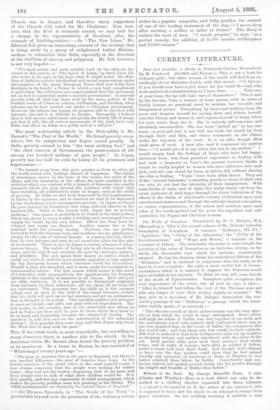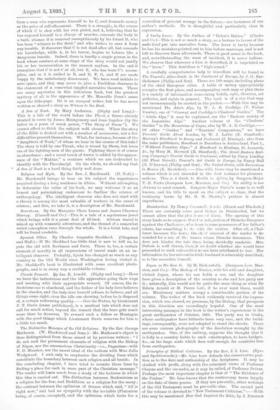Witness to the Deed. By George Manville Fenn. 3 vole.
(Chatto and Windus.)—Here is a book which can only be de- scribed as a shilling shocker expanded into three volumes. A is about to be married to B, the widow of the convict C, who is supposed to have met his death in an attempt to escape from penal servitude. On his wedding morning A receives a visit from a man who represents himself to be C, and demands money as the price of self-effacement. There is a struggle, in the course of which C is shot with his own pistol, and A, believing that he has exposed himself to a charge of murder, conceals the body in a bath, whence it is removed. surreptitiously by his friend D, who has been "witness to the deed.," and who wishes to save A from any trouble. D discovers that C is not dead after all, but conceals his knowledge, while A, in his terror, begins to behave like a dangerous lunatic. Indeed, there is hardly a single person in the book whose conduct at some stage of the story would not justify his or her incarceration in the nearest asylum. In the end it transpires that C is not C at all, but E, who has been C's accom- plice, and so A is united to B, and D, F, G, and H are made happy by the satisfactory denouement. We have used initials to save space, and they may serve to give a Euclidian clearness to the statement of a somewhat tangled narrative theorem. There are many mysteries in this ridiculous book, but the greatest mystery of all is the appearance of Mr. Manville Fenn's name upon the title-page. He is an unequal writer, but he has never written so absurd a story as Witness to the Deed.



































 Previous page
Previous page